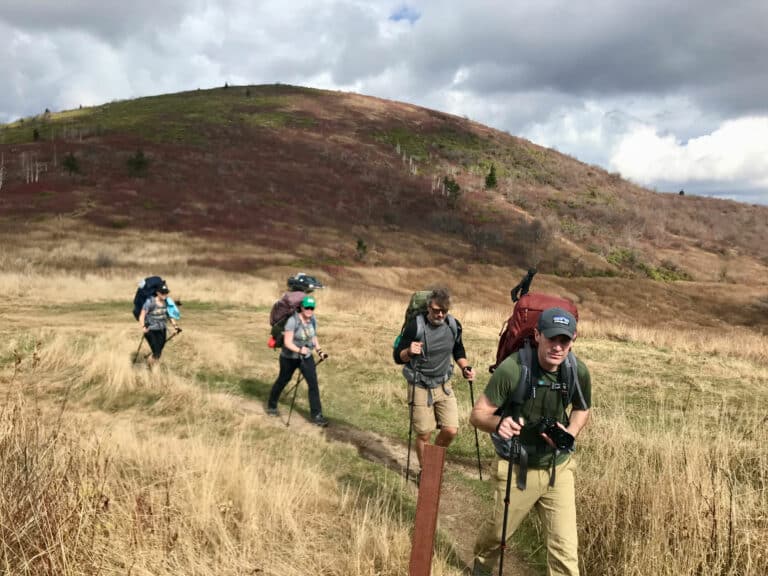For more than a month, 61-year-old Theresa “Red” Terry and her 30-year-old daughter Minor occupied tree-sits to block construction of a natural gas transmission pipeline on land that’s been in the Terry family for seven generations.
On Friday, May 4, however, a federal judge ruled that after midnight on Saturday, May 5, the Terrys would incur $1,000 fines for each day the two remained in the trees, and after May 10, U.S. Marshals would move in to remove them.
So on Saturday, before a crowd of nearly 100 supporters, along with state and county law enforcement, the two women descended from the treetops.
“There was really nothing I could do but show my ass and give Mountain Valley Pipeline money” in the form of the daily fines, Red told reporters after she reached the ground.
Red and Minor set up their tree-sits on April 2 in a corridor awarded by eminent domain to Pittsburgh company EQT for construction of the 303-mile Mountain Valley Pipeline, which will transport natural gas from the Marcellus and Utica shale formations in northern West Virginia to a transfer station in southern Virginia.
The two were inspired by a pair of tree-sitters in Jefferson National Forest on Peters Mountain, who went up in late February to protest the pipeline’s impact on the Appalachian Trail. A third protester went up in a monopod several miles away to block an access road. That protester, known as “Nutty,” has been denied food and water, although she has written on Facebook that she has supplies to last a while longer.
A couple of weeks after the Terrys went up, another three tree-sitters went up on land owned by Carolyn Reilly in Franklin County.
Mountain Valley Pipeline filed federal injunctions against the Terrys and Reillys to find them in contempt of court and have them fined, removed, or both. The ruling against the Terrys came down Friday evening, while the judge has yet to rule in the Reilly case.
Red and Minor’s press team announced a news conference late Friday evening for Saturday. A few hours before the beginning of the conference, supporters began dismantling support camps at both tree-sits. Minor tossed gear from her tree-sit, before lowering herself by ropes. She was served a summons by police for criminal charges including trespassing, then released. Minor addressed reporters and embraced her partner before the group walked to Red’s stand, a few hundred yards away.
Red took longer to come down from her tree-stand, aided by a local fire official approved down the family. The moment she touched ground, a crew of pipeline contractors with chainsaws emerged from the woods to boos and jeers. The crew was shooed away by police and Red’s supporters, but headed to the site of Minor’s tree-sit.
Red embraced her husband Coles and her children before crossing Bottom Creek and talking to reporters. Red and Minor say they will continue to fight the pipeline, but through other means, including political pressure. They’ve also got to wrap up their ongoing court cases.
The 34-day tree-sits attracted widespread media attention and brought the eyes of the world to the fight to forestall the Mountain Valley Pipeline. Red and Minor clearly intend to use the status they have earned to continue the crusade to preserve their land, as well as the land of more than 300 others along the route who refused to sell their land but instead had it taken through eminent domain.








